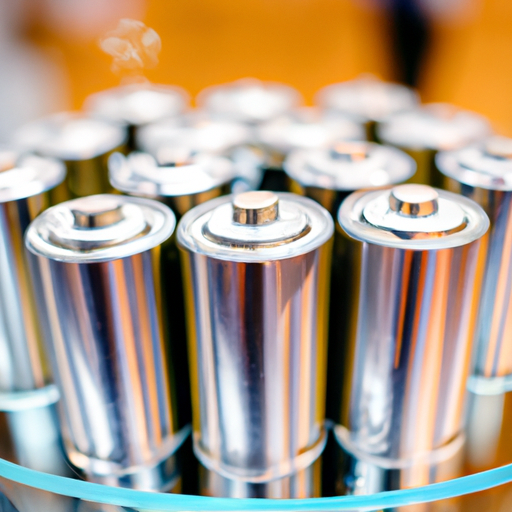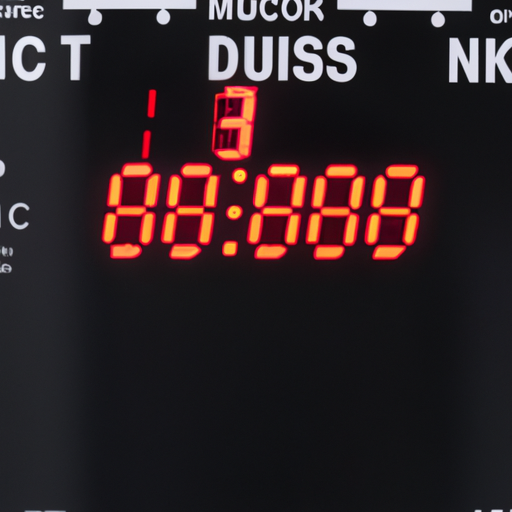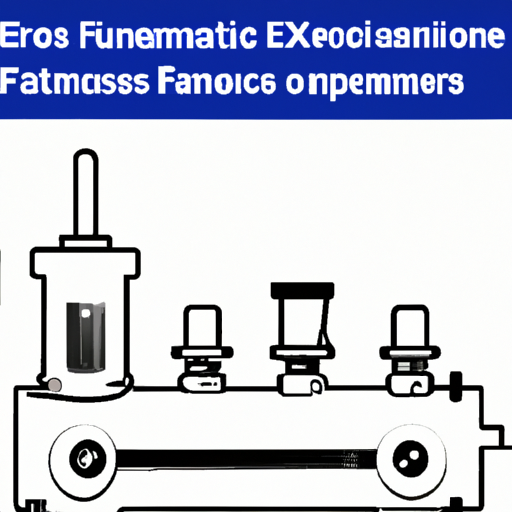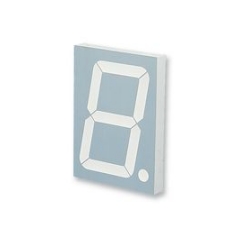What are the popular capacitor energy storage product models?
Popular Capacitor Energy Storage Product Models
I. Introduction
A. Definition of Capacitor Energy Storage
Capacitor energy storage refers to the use of capacitors to store electrical energy for later use. Unlike traditional batteries, which store energy chemically, capacitors store energy electrostatically. This allows for rapid charge and discharge cycles, making capacitors ideal for applications requiring quick bursts of energy.
B. Importance of Capacitors in Energy Storage Systems
Capacitors play a crucial role in modern energy storage systems. They are essential for applications that require high power density, such as electric vehicles, renewable energy systems, and power quality improvement. Their ability to charge and discharge quickly makes them invaluable in stabilizing power supplies and enhancing the performance of various electronic devices.
C. Overview of the Article
This article will explore the different types of capacitors used in energy storage, key features of capacitor energy storage systems, popular product models from leading manufacturers, their applications, and future trends in the industry.
II. Types of Capacitors Used in Energy Storage
A. Electrolytic Capacitors
1. Characteristics
Electrolytic capacitors are polarized capacitors that offer high capacitance values in a relatively small package. They are typically used in applications where large amounts of energy need to be stored and released quickly.
2. Applications
Common applications include power supply filtering, energy storage in power electronics, and coupling/decoupling in audio equipment.
B. Supercapacitors (Ultracapacitors)
1. Characteristics
Supercapacitors, also known as ultracapacitors, have a much higher energy density than traditional capacitors. They can store and release energy much faster than batteries, making them suitable for applications requiring rapid energy delivery.
2. Applications
Supercapacitors are widely used in renewable energy systems, electric vehicles, and backup power systems due to their ability to handle high charge and discharge rates.
C. Film Capacitors
1. Characteristics
Film capacitors are made from thin plastic films and are known for their stability, low loss, and high insulation resistance. They are non-polarized and can operate over a wide temperature range.
2. Applications
These capacitors are commonly used in power electronics, audio equipment, and high-frequency applications.
D. Ceramic Capacitors
1. Characteristics
Ceramic capacitors are non-polarized and offer high stability and reliability. They are available in various capacitance values and voltage ratings.
2. Applications
They are often used in decoupling applications, timing circuits, and RF applications due to their small size and low cost.
III. Key Features of Capacitor Energy Storage Systems
A. Energy Density vs. Power Density
Energy density refers to the amount of energy stored per unit volume, while power density refers to the rate at which energy can be delivered. Capacitors typically have high power density but lower energy density compared to batteries.
B. Charge and Discharge Rates
Capacitors can charge and discharge much faster than batteries, making them ideal for applications requiring quick bursts of energy. This rapid response time is crucial in applications like grid stabilization and electric vehicles.
C. Lifespan and Cycle Stability
Capacitors generally have a longer lifespan than batteries, with many capable of enduring millions of charge and discharge cycles. This longevity makes them a cost-effective solution for energy storage.
D. Temperature and Environmental Tolerance
Capacitors can operate effectively over a wide range of temperatures and environmental conditions, making them suitable for various applications, from consumer electronics to industrial systems.
IV. Popular Capacitor Energy Storage Product Models
A. Maxwell Technologies
1. Overview of Product Line
Maxwell Technologies is a leader in the development of ultracapacitors, offering a range of products designed for various applications.
2. Notable Models (e.g., BMOD series)
The BMOD series is known for its high energy density and power density, making it suitable for applications in transportation and renewable energy.
B. Panasonic
1. Overview of Product Line
Panasonic offers a wide range of capacitors, including electrolytic and film capacitors, known for their reliability and performance.
2. Notable Models (e.g., EEH-ZE series)
The EEH-ZE series is designed for energy storage applications, providing high capacitance and low ESR (Equivalent Series Resistance).
C. Nesscap
1. Overview of Product Line
Nesscap specializes in supercapacitors, providing solutions for energy storage in various industries.
2. Notable Models (e.g., ESM series)
The ESM series offers high energy and power density, making it ideal for applications in renewable energy and electric vehicles.
D. KEMET
1. Overview of Product Line
KEMET is known for its diverse range of capacitors, including tantalum, ceramic, and film capacitors.
2. Notable Models (e.g., T520 series)
The T520 series is designed for high-performance applications, offering excellent stability and reliability.
E. Vishay
1. Overview of Product Line
Vishay manufactures a wide variety of capacitors, including aluminum electrolytic and ceramic capacitors.
2. Notable Models (e.g., 193 series)
The 193 series is known for its high capacitance and low ESR, making it suitable for power supply applications.
F. Other Notable Manufacturers
1. A123 Systems
A123 Systems specializes in lithium iron phosphate batteries and ultracapacitors, focusing on high-performance energy storage solutions.
2. Ioxus
Ioxus is known for its innovative ultracapacitor technology, providing energy storage solutions for various applications.
3. Samsung SDI
Samsung SDI produces a range of energy storage products, including lithium-ion batteries and capacitors, focusing on high energy density and performance.
V. Applications of Capacitor Energy Storage Systems
A. Renewable Energy Integration
Capacitors are essential in integrating renewable energy sources, such as solar and wind, into the grid. They help stabilize voltage and provide backup power during fluctuations.
B. Electric Vehicles
In electric vehicles, capacitors are used to provide quick bursts of energy for acceleration and regenerative braking, enhancing overall performance and efficiency.
C. Power Quality Improvement
Capacitors improve power quality by reducing voltage fluctuations and harmonics, ensuring a stable power supply for sensitive electronic equipment.
D. Grid Stabilization
Capacitor energy storage systems play a vital role in grid stabilization, providing backup power during outages and helping to balance supply and demand.
E. Consumer Electronics
In consumer electronics, capacitors are used for energy storage in devices like cameras, smartphones, and laptops, providing quick bursts of power for flash and other high-demand functions.
VI. Future Trends in Capacitor Energy Storage
A. Technological Advancements
Ongoing research and development in capacitor technology are leading to higher energy densities, improved charge/discharge rates, and enhanced lifespan.
B. Market Growth and Demand
The demand for capacitor energy storage systems is expected to grow significantly, driven by the increasing adoption of renewable energy and electric vehicles.
C. Environmental Considerations
As the world shifts towards sustainable energy solutions, capacitors are becoming more environmentally friendly, with manufacturers focusing on reducing waste and improving recyclability.
D. Integration with Other Energy Storage Technologies
Future energy storage systems will likely see greater integration between capacitors and other technologies, such as batteries, to create hybrid systems that leverage the strengths of each technology.
VII. Conclusion
A. Summary of Key Points
Capacitor energy storage systems are essential for modern energy applications, offering rapid charge and discharge capabilities, long lifespans, and versatility across various industries.
B. The Role of Capacitors in Future Energy Solutions
As the demand for efficient energy storage solutions continues to rise, capacitors will play a crucial role in shaping the future of energy systems, particularly in renewable energy integration and electric vehicles.
C. Final Thoughts on the Importance of Capacitor Energy Storage Systems
In conclusion, capacitor energy storage systems are vital components of the modern energy landscape. Their unique characteristics and capabilities make them indispensable for a wide range of applications, ensuring a more stable and efficient energy future.
VIII. References
A. Academic Journals
- Journal of Energy Storage
- IEEE Transactions on Power Electronics
B. Industry Reports
- Market Research Reports on Energy Storage Systems
- Reports from the International Energy Agency (IEA)
C. Manufacturer Websites
- Maxwell Technologies
- Panasonic
- Nesscap
- KEMET
- Vishay
D. Relevant Books and Articles
- "Energy Storage: A Key Technology for a Sustainable Future" by John Smith
- "Capacitors: Principles and Applications" by Jane Doe
This comprehensive overview of popular capacitor energy storage product models highlights the importance of capacitors in modern energy systems and their potential for future advancements.







